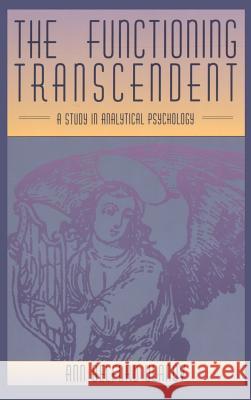The Functioning Transcendent: A Study in Analytical Psychology » książka
The Functioning Transcendent: A Study in Analytical Psychology
ISBN-13: 9781630510251 / Angielski / Twarda / 1996 / 240 str.
The Functioning Transcendent: A Study in Analytical Psychology
ISBN-13: 9781630510251 / Angielski / Twarda / 1996 / 240 str.
(netto: 179,73 VAT: 5%)
Najniższa cena z 30 dni: 188,72
ok. 16-18 dni roboczych.
Darmowa dostawa!
The Transcendent is a reality that functions in all our lives all the time -call it God, the unknown, or the holy. It is not some obscure out-of-reach Other available only to those with specialized knowledge or a phenomenon spoken about only in a church, temple or mosque. The Transcendent is both beyond us, yet functioning within each of us. It is present in our exchanges with others, yet nearer to us than our own heartbeat. In our daily lives, the Transcendent is often experienced addressing us through our compulsions, perversions, and ordinary struggles. We find it touching us through our most shameful problems and bidding us to realize our most hidden promise. Jungian analyst Ann Ulanov shows us how the Transcendent appears in her clinical work, how to work with it in dreams and symptoms, and how it informs encounters between analyst and analysand. She demonstrates the spiritual aspect of analysis in her case observations dealing with fatness and the female, masochistic suffering, parental relationships, follow-up treatment in patient/therapist sex, and the resolution of suicidal temptations.
The Transcendent is a reality that functions in all our lives all the time -call it God, the unknown, or the holy. It is not some obscure out-of-reach Other available only to those with specialized knowledge or a phenomenon spoken about only in a church, temple or mosque. The Transcendent is both beyond us, yet functioning within each of us. It is present in our exchanges with others, yet nearer to us than our own heartbeat. In our daily lives, the Transcendent is often experienced addressing us through our compulsions, perversions, and ordinary struggles. We find it touching us through our most shameful problems and bidding us to realize our most hidden promise. Jungian analyst Ann Ulanov shows us how the Transcendent appears in her clinical work, how to work with it in dreams and symptoms, and how it informs encounters between analyst and analysand. She demonstrates the spiritual aspect of analysis in her case observations dealing with fatness and the female, masochistic suffering, parental relationships, follow-up treatment in patient/therapist sex, and the resolution of suicidal temptations.











